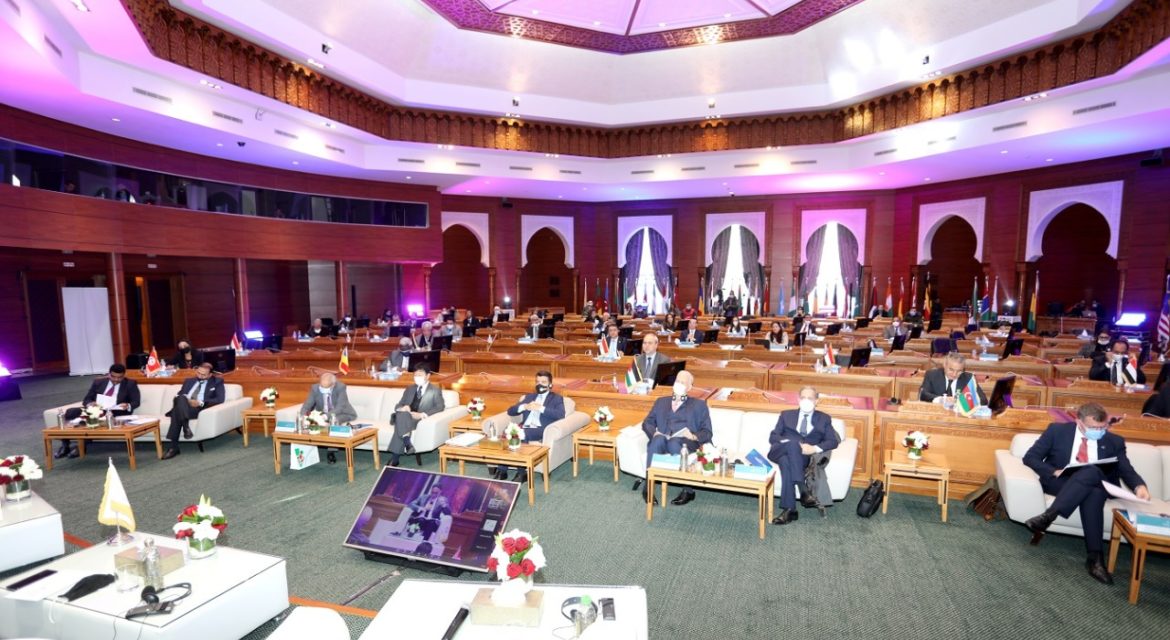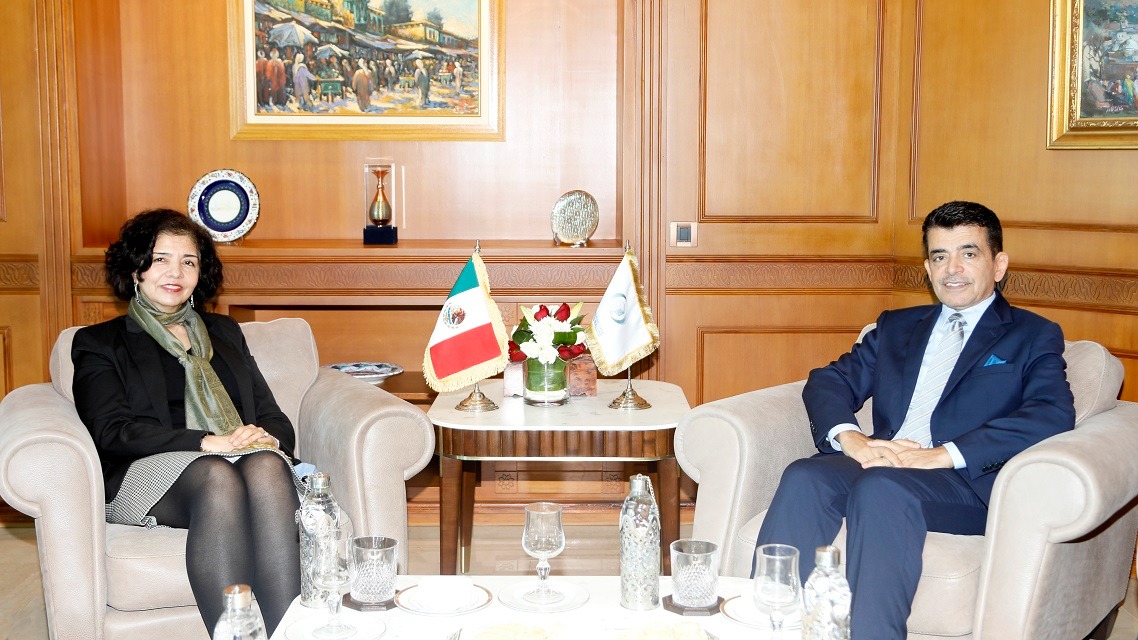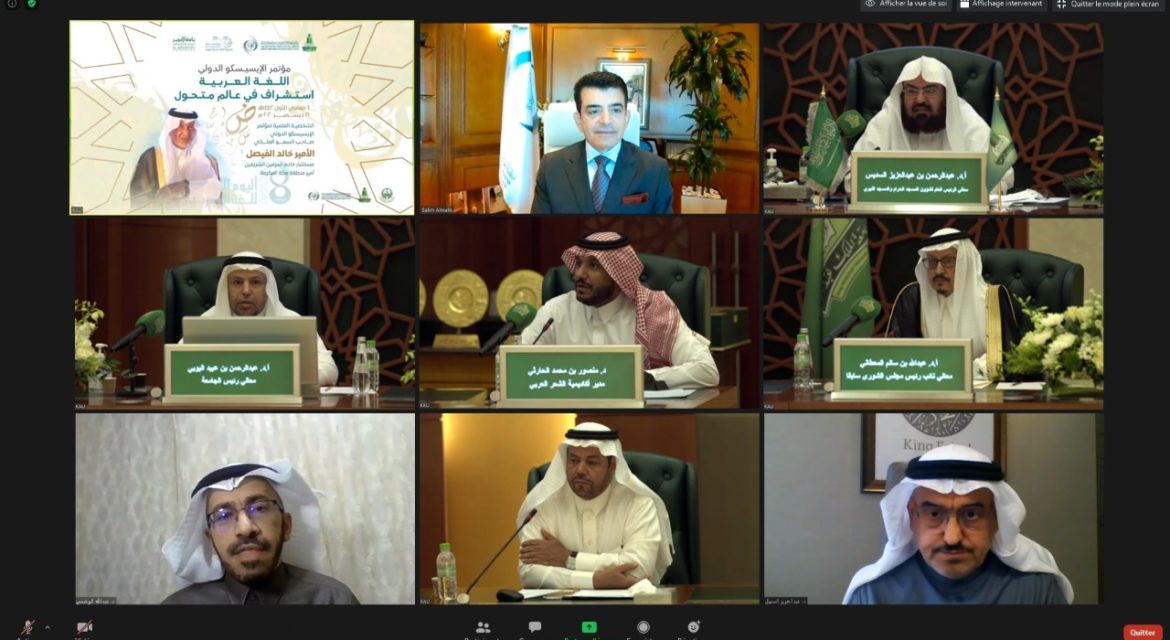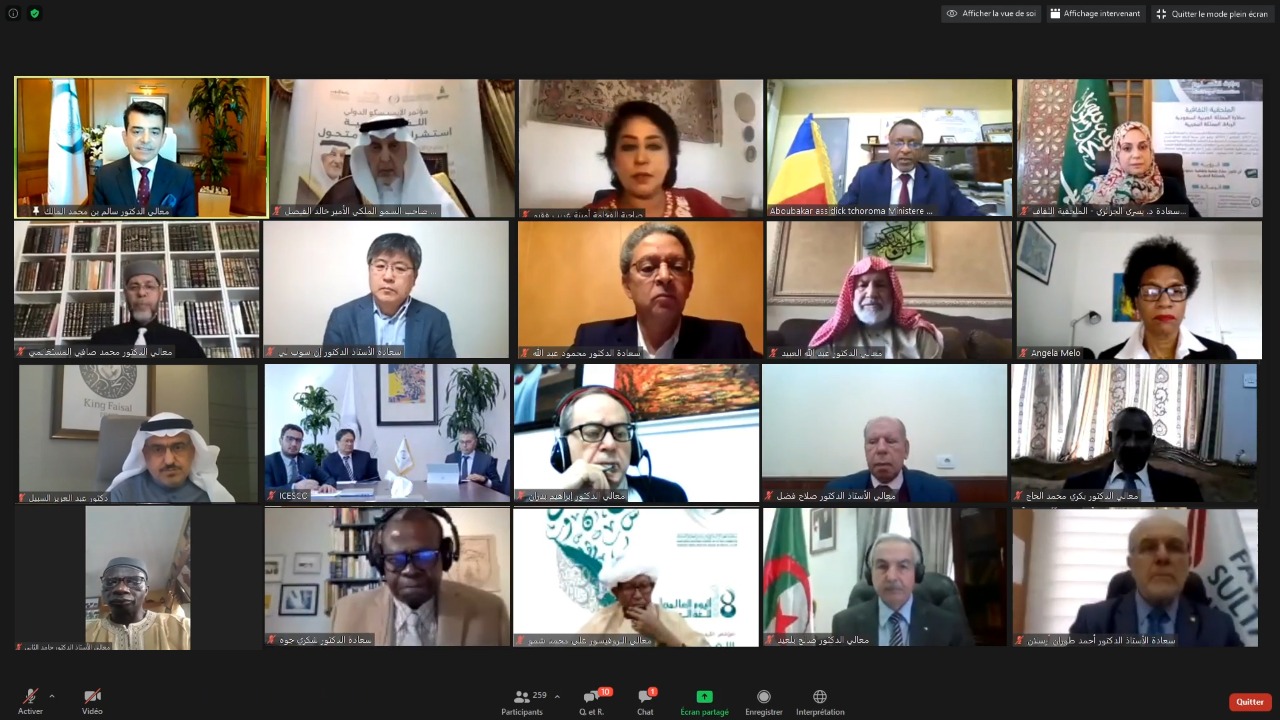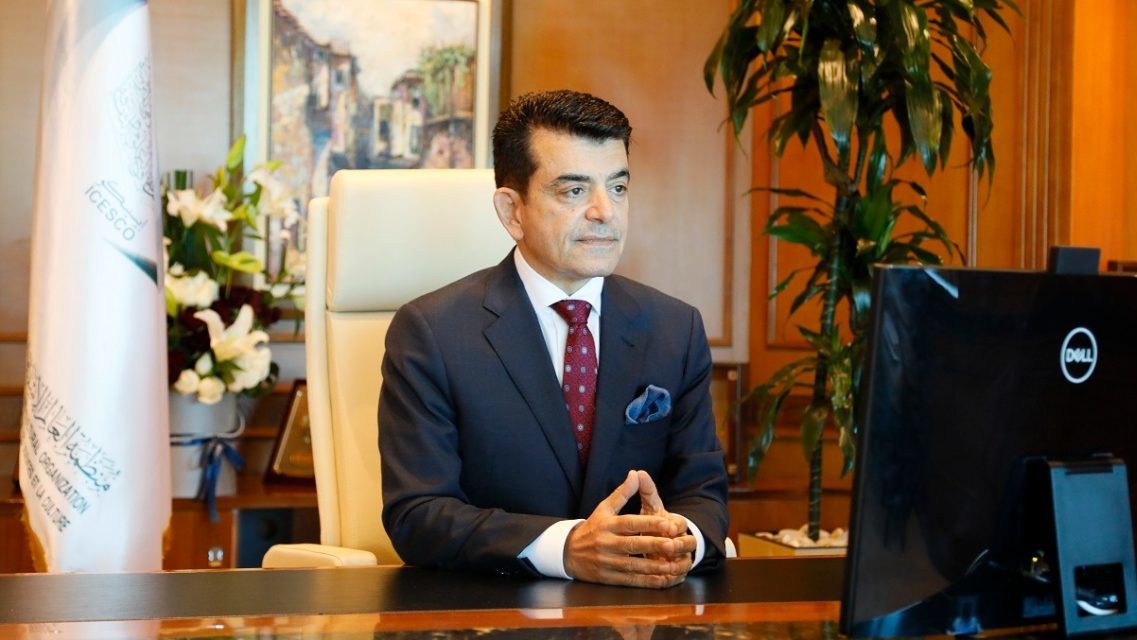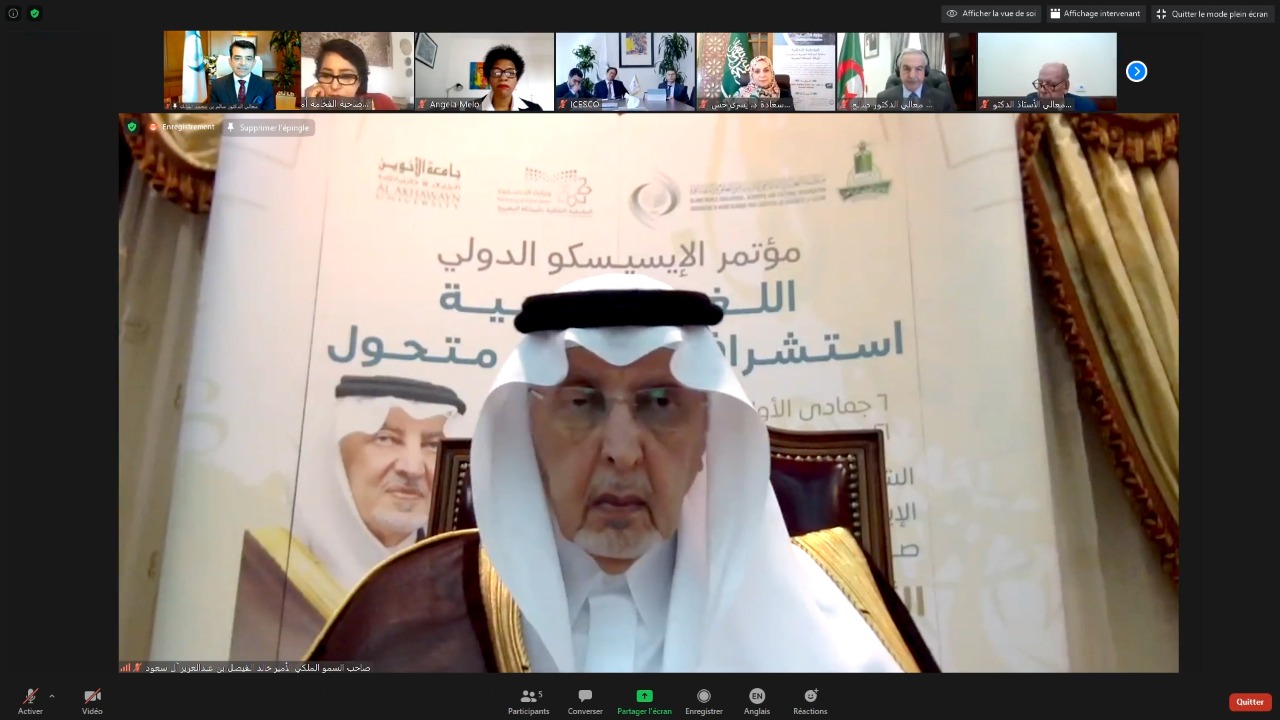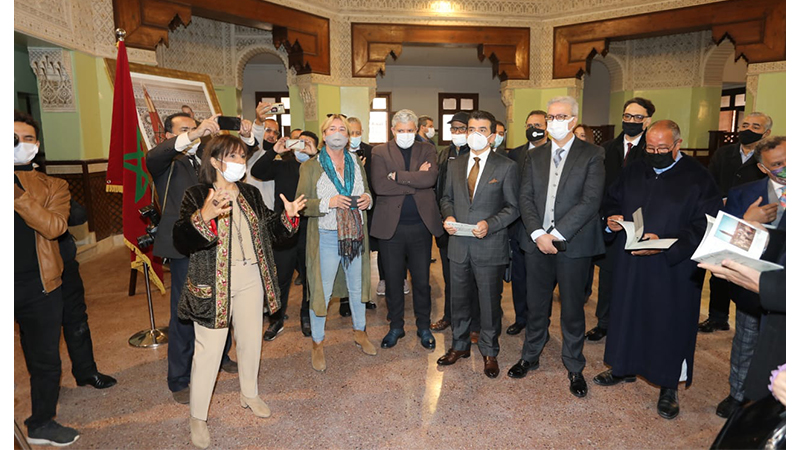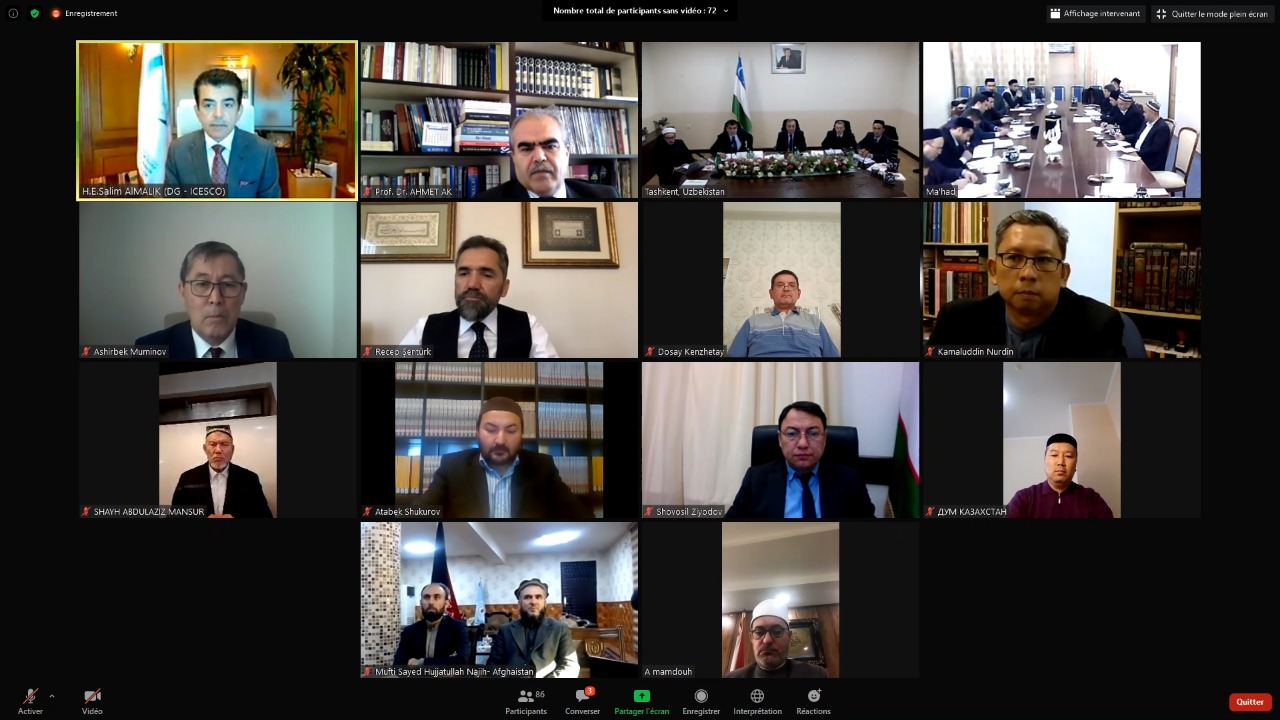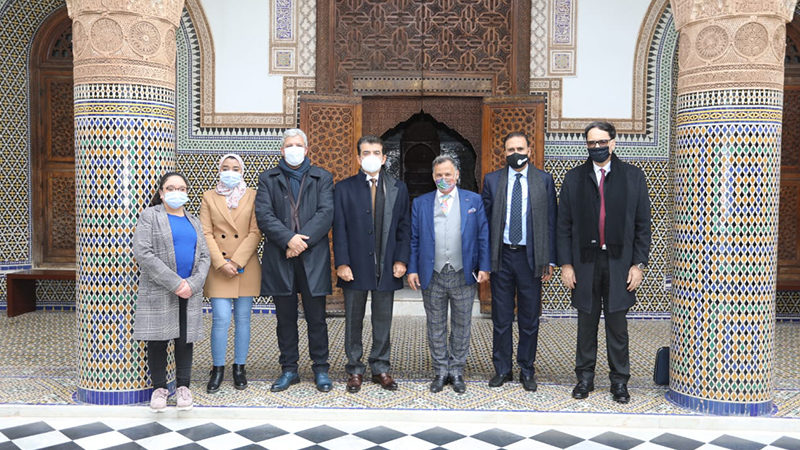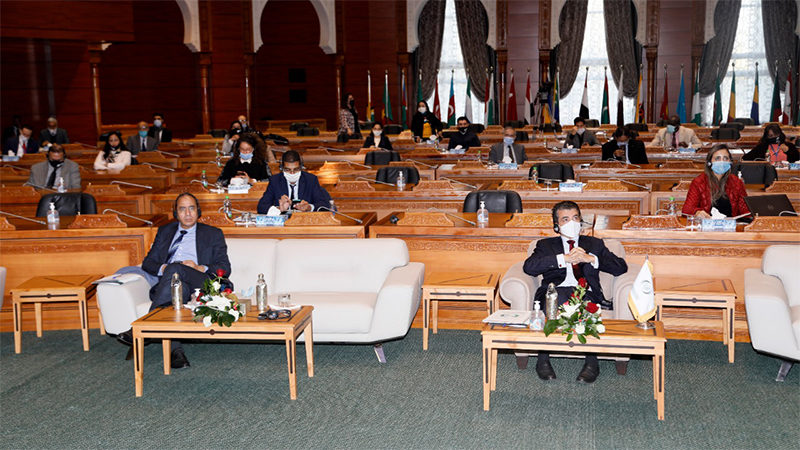The participants in the roundtable on “Foresight Attitude in the Philosophical Spirit of Ibn Khaldun,” agreed unanimously that the ideas and books of Ibn Khaldoun will remain valuable references adapted to all eras and places while calling for the resources’ profound examination to understand and analyze the present and anticipate the future. The Islamic World Educational, Scientific, and Cultural Organization (ICESCO) held yesterday the roundtable in partnership with Konrad-Adenauer-Stiftung Foundation Morocco, at ICESCO’s headquarters.
The Organizers held the event both face-to-face and remotely. The roundtable hosted high-level participants including ambassadors, experts, researchers, and academics from several countries.

Dr. Salim M. AlMalik, ICESCO Director-General (DG), delivered an opening address wherein he revealed that the Organization would carry out a study on the foresight thought of Ibn Khaldun and his biography. The study will touch on the main phases of the renowned scholar’s life, his intellectual journey, and enduring achievements and works, the DG continued.
Dr. AlMalik reaffirmed that roundtables, such as ICESCO’s, seek to highlight the major role of intellectuals and scholars who left visible imprints in the history of the Islamic world and humanity at large. The emphasis, Dr. AlMalik went on, should be done through the recognition of the scholars’ efforts, examining their ideas, and learning from their intellectual achievement heritage.

Mr. Steffen Krüger, Representative of the Konrad-Adenauer-Stiftung Foundation Morocco, pointed out that the Berlin-based foundation, with offices in more than 100 countries, conducts studies in languages. The foundation’s interests include foresight, sciences, innovation, security, and the thoughts of outstanding thinkers similar to Ibn Khaldun.
Dr. Kaïs Hammami, Director of ICESCO Strategic Foresight Center, underscored the importance of the roundtable, listed its objectives and topics. He also stated that COVID-19 uncovered the important role of foresight today as it is key to implementing the desired change.
Dr. Mohamed Zine El Abidine, Director of Culture and Communication Sector of ICESCO, moderated the first working session “History perception in Ibn Khaldun’s writings.” Dr. Sohail Inayatullah, Visiting Lecturer at Futures Studies Institute at Tamkang University in Taiwan, stated that Ibn Khaldun was the first to use the term “future.” The Russian Orientalist Dr. Anna Belikova then explored the evolutionary context of Ibn Khaldun’s critical thought. Dr. Hassan Haj Ali Al Azrak, Professor of Political Science at the University of Khartoum, said that Ibn Khaldun’s analysis of clannism contributes largely to the studies of civilizational analysis studies that emerged over the last two decades.

At the same session, Dr. Nadeem Omar Tarar, Executive Director of the Center for Cultural and Development, Islamabad, provided a critical view of Ibn Khaldun’s approach to the exegesis of the Holy Quran. Dr. Heba Raouf Mohamed Ezzat, Researcher and university professor at Ibn Haldun University in Turkey, then pointed out that the works of Ibn Khaldun remain of utmost importance, namely his sociobiological approach to understanding life in general.
Ambassador Khalid Fathalrahman, Director of Partnership and International Cooperation Sector of ICESCO, moderated the second session “Empires and states theory of power.” Mr. Victor V. Motti, Director of World Futures Studies Federation, gave a short biography of Ibn Khaldun. Dr. Mohammed Ait Hammou, Researcher and university professor of Islamic Philosophy and Modern Arabic Thoughts at the Dhar El Mahraz University of Fes, made a comparative presentation between the realistic and conceptual history of Ibn Khaldun. Dr. Faouzi Boukhriss, Researcher and university professor of sociology at Ibn Tofail University in Kenitra, talked about foresight in Ibn Khaldun’s thought through the education philosophy. Dr. Mohamed Cherif Ferjani, Tunisian France-based political scientist, Islamologist, and researcher, positioned Ibn Khaldun’s theories among anterior theories.
Dr. Abdelilah Benarafa, Advisor to ICESCO Director-General (DG), moderated the third session. The third session titled “Ibn Khaldun’s foresight thinking under the framework of modern Islamic thoughts,” discussed foresight thought in Ibn Khaldun’s philosophy.
Dr. Abdessamad Ghazi, Director of the Center for Monitoring and Foresight Studies at the Rabita Mohammadia of Ulemas, said that Ibn Khaldun was more than a history commentator and that his books give an in-depth analysis on the course of history.
Dr. Hanane Hamoda, University Professor of sociology and anthropology at Mohammed V University in Rabat, presented Ibn Khaldun’s thought model. Dr. Mohamed Messouadi, University Professor of Philosophy at Mohammed V University in Rabat and Researcher in political philosophy, stressed that Ibn Khaldun had predicted the reality of our era. Dr. Allen Fromherz, Professor of History and director of the Middle East Studies Center at Georgia State University, provided a theoretical approach to Ibn Khaldun through his biography. Dr. Faouzi Skali, a Doctor in anthropology, ethnology, and religious sciences, founder of the Festival of Sufi Culture of Fes, touched on the Sufi thought in Ibn Khaldun’s philosophy.
At the close of the roundtable, Dr. Kaïs Hammami thanked the participants, ICESCO’s guests and team.


